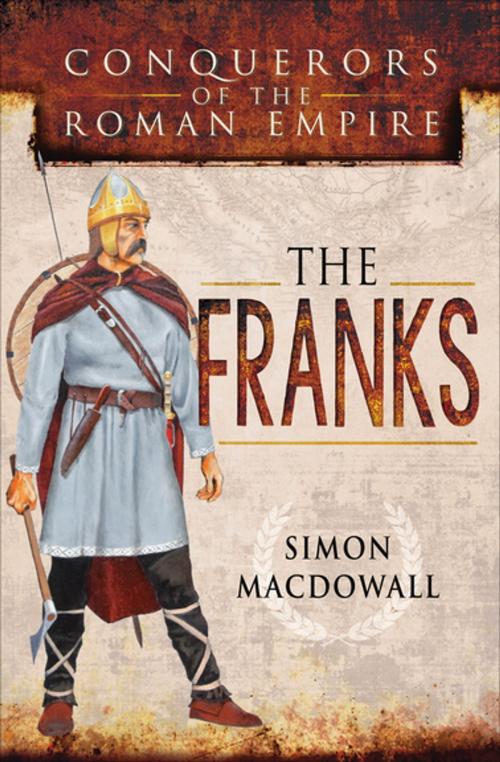| Author: | Simon MacDowall | ISBN: | 9781473889606 |
| Publisher: | Pen & Sword Books | Publication: | July 30, 2018 |
| Imprint: | Pen & Sword Military | Language: | English |
| Author: | Simon MacDowall |
| ISBN: | 9781473889606 |
| Publisher: | Pen & Sword Books |
| Publication: | July 30, 2018 |
| Imprint: | Pen & Sword Military |
| Language: | English |
How a relatively small group of Germans came to be overlords of all of the former Roman province of Gaul—giving their name to France in the process.
Simon MacDowall studies the Frankish way of warfare and assesses its effectiveness, from their earliest incursions into the Empire, down to the Battle of Casilinum (554), their last battle against Romans, The size and composition of their armies, their weapons (including the characteristic Francisca axe), equipment, and tactics are discussed.
In this tumultuous period, the Franks had a complex relationship with the Romans, being by turns invaders, recruits to the legions, and independent allies. Accordingly, this book also covers the Franks’ role in defending the Rhine frontier against subsequent invasions by the Vandals, Alans, Suebi, and the Huns. Their success in defending their new homeland against all comers allowed them, under the leadership of the Merovingian dynasty of Clovis, to establish the Frankish kingdom as one of the most enduring of the “barbarian” successors to the power of Rome.
How a relatively small group of Germans came to be overlords of all of the former Roman province of Gaul—giving their name to France in the process.
Simon MacDowall studies the Frankish way of warfare and assesses its effectiveness, from their earliest incursions into the Empire, down to the Battle of Casilinum (554), their last battle against Romans, The size and composition of their armies, their weapons (including the characteristic Francisca axe), equipment, and tactics are discussed.
In this tumultuous period, the Franks had a complex relationship with the Romans, being by turns invaders, recruits to the legions, and independent allies. Accordingly, this book also covers the Franks’ role in defending the Rhine frontier against subsequent invasions by the Vandals, Alans, Suebi, and the Huns. Their success in defending their new homeland against all comers allowed them, under the leadership of the Merovingian dynasty of Clovis, to establish the Frankish kingdom as one of the most enduring of the “barbarian” successors to the power of Rome.















